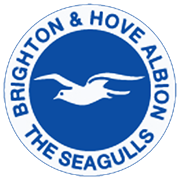Daniel Joseph WILSON
Date of birth
January 1st, 1960 - Wigan
First joined
December 26th, 2008 [appointed as manager]
First match managed
December 28th, 2008 vs. Brighton and Hove Albion (Home)
Last match managed
February 26th, 2011 vs. Southampton (Away)
Full international
24 apps.
After Maurice Malpas' sacking in November 2008, the Town board received over fifty applicants for the vacant manager's position - one of which, Ian Holloway, actually watched a game from the Town End prior to Malpas' departure! Originally, betting was stopped on former Bristol City and Rovers boss John Ward, after two bets of over £1000 were placed - over time, it became apparent that this was a red herring.
A shortlist of twelve were interviewed, and eventually - after five weeks without a manager - it seemed that the board had whittled it down to three - Sheffield United veteran Gary Speed, former Walsall boss Richard Money, and ex-Town legend Colin Calderwood, who was in charge at Nottingham Forest. Again, betting was stopped on Calderwood, who was rumoured to be getting the sack at Forest - but then it appeared as though Money had been offered the job, after rumours surfaced that he had resigned from his position as academy director at Newcastle. As the deal with Money was stalling, with the Town unable to agree a compensation package with the Magpies, Danny Wilson left his job at Hartlepool - and he immediately shot to the top of the Town's wanted list. The deal to bring Wilson to the County Ground was done late on Christmas Eve, and it was announced on Boxing Day - Wilson signing a two-and-a-half year contract.
Wilson took over with the Town separated from the relegation zone by just one goal - Wilson sat out his first match, and watched his new side win 2-1 at Leyton Orient to leapfrog the O’s in the table, only for the good work to be undone two days later with a home defeat to fellow relegation strugglers Brighton. After a mixed bag of results over the following month, Wilson moved into the transfer market for the first time, and made two significant loan signings - the first, Gordon Greer from Doncaster to replace injured captain Hasney Aljofree, the other Hal Robson-Kanu from Reading. With Greer helping to shore up the defence, and Robson-Kanu providing more attacking options from the midfield, they had an immediate impact - the Town going unbeaten in their next five games, with two home victories and three away draws - two of which came after conceding late equalisers at promotion chasing Leicester and Millwall.
Conceding late goals became somewhat of an issue for the Town - in fact, the Town dropped a total of 12 points in the last five minutes of matches over the season - and the trend continued through February and into March, first when Wilson’s former club Hartlepool scored a hotly disputed penalty winner at the County Ground, then when Jermaine Beckford finally broke the Town’s resistance with an 87th minute winner at Leeds. This defeat meant that Swindon were in the relegation zone, three points adrift of safety - and with the season’s run-in featuring many games against fellow relegation candidates, Wilson dipped into the loan market again, this time for Welsh international midfielder Owain Tudur-Jones. His home debut coincided with the start of a crucial three match winning run, including successive 3-0 wins over Southend and Hereford, and a topsy-turvy victory at Northampton, which saw the Town come back from behind to win 4-3 - top scorer Simon Cox netting seven goals in the three games. The run put the Town right up into 15th place, with six teams and five points separating them from the drop zone, and with the team playing far better football than earlier in the season - with attacking wing-play through Robson-Kanu and Anthony McNamee, plus the potent forward pairing of Cox and Billy Paynter - survival was looking more likely.
The next four games were all relegation crunch matches - and after defeat at Yeovil and a 0-0 draw with Crewe sucked them back into it, a superb 3-2 win at Brighton pulled them six points clear, though Northampton had two games in hand. Defeat at home to Leyton Orient started the nerves jangling again though, and the Town looked to be right back in the mire approaching the end of the game at Carlisle - until a 94th minute strike by Tudur-Jones pulled the game level, and up two places in the table. Survival was finally assured on the penultimate game of the season, with a 2-1 derby victory over Bristol Rovers, Swindon ending the season in 15th place.
After the flirtation with relegation, the loss of 31-goal striker Cox over the summer had many pundits tipping the Town for relegation, but Wilson pulled off some major coups in the transfer market - signing Greer on a permanent deal, plus Jonathan Douglas and David Lucas from Leeds, Alan O’Brien from Hibernian, and Scott Cuthbert from Celtic. The arrivals of Douglas and Cuthbert were particularly impressive, as both players rejected approaches from Championship sides to come to the County Ground - without Cox though, the Town started the season with only one recognised striker, and the pundits seemed vindicated when the opening day at Gillingham ended in a 5-0 thrashing. That game proved to be a blip though, as the Town went on an eleven match unbeaten run in the League - though with seven of those matches drawn, Swindon still sat just outside the play-off positions, and though Wilson had dipped into the loan market to bring in strikers Tope Obadeyi from Bolton, Alex Revell from Southend and Ben Hutchinson from Celtic, with Billy Paynter out of form, none of the forward players were able to hold down a regular slot in the side.
Suspension to midfield lynchpin Douglas brought consecutive defeats in October that saw Swindon slip right down to mid-table - but after Wilson took a gamble on signing striker Charlie Austin from Wessex League outfit Poole Town, his first partnership with Paynter in the reserves resulted in a 4-1 win over Reading with two goals each for both strikers - Paynter was recalled to the starting eleven, and scored twice more in another 4-1 win over Tranmere; then Austin was granted his full debut when the Town next played three weeks later at Carlisle, and he bagged the only goal of the game. Over the coming months, both strikers caught fire as the Town won twelve and drew five in an eighteen game spell - Austin scoring thirteen goals, Paynter seventeen. The run included some superb results - not least a 3-0 demolition of Leeds at the County Ground - and at the end of February, the Town sat in fifth place, seven points off the second automatic promotion spot with a game in hand.
A tough March was to follow though, and though some doubted the Town’s credentials after back-to-back defeats at the start of the month - one a 4-0 home reverse at the hands of Bristol Rovers - Swindon bounced back with four successive away wins, sandwiching a home draw with champions-elect Norwich. This run saw the Town beat Brighton and Hartlepool, and more notably Southampton and another 3-0 whitewash at Leeds - a result that saw the Town leapfrog the Elland Road outfit and into an automatic promotion place, having been eighteen points behind the Whites on Boxing Day. The Town ended the Easter period with another 3-0 win, this time over Tranmere, leaving them in second spot with just six games remaining.
Unfortunately, hitting that automatic place seemed to have an adverse psychological effect on the team, and they failed to win any of their next four games - an undeserved 3-0 reverse at Colchester followed by draws against Exeter, Walsall and Wycombe. Somewhat surprisingly though, with the other sides in the race dropping points too, a 3-2 win over Brentford on the penultimate day of the season meant that the Town were still in the hunt for an automatic spot - though they would have to beat Millwall on their own ground and hope that Leeds tripped up at home to Bristol Rovers on the last day of the season to take the prize. Despite taking an early lead at the Den and Leeds going one behind and down to ten men, neither result went the Town's way - Millwall came back to win 3-2, whilst it was Leeds who claimed promotion with a 2-1 win over the Gas. As it was, Charlton also leapfrogged Swindon on the final day, the Town finishing in fifth place - and they would have to face the Addicks in the play-offs.
The tie produced two of the most memorable Town matches in history - with Paynter missing the first leg through injury, Wilson pushed loan star Danny Ward up front from midfield - Ward netting the Town's second goal after Charlie Austin had opened the scoring in a 2-1 victory. The second leg had absolutely everything. Though Paynter returned from injury, the Town lost goalkeeper David Lucas in the first minute of the game through injury, then two first-half goals saw Charlton take the lead on aggregate. When captain Gordon Greer was sent off midway through the second period, it looked as though the game was beyond the Town - but Ward struck again to level the tie, and before extra time, the referee evened up the numbers, showing Miguel Llera a red card for a professional foul on Austin. The extra period was open, with chances at both ends - Swindon clung on to take the game to penalties, in which they scored all five of their penalties - Charlton captain Nicky Bailey missed his, and Swindon progressed to the final at Wembley Stadium.
Sadly, the superb season didn't have a happy ending - meeting Millwall in the final, the Town, missing the leadership influence of Greer, seemed overawed by the occasion - Wilson himself visibly angered by the team's first half performance, with the Lions winning the battle all over the pitch. Swindon went on to lose the match 1-0, but not before squandering a golden opportunity of their own, when Austin raced in on goal having intercepted a pass on the halfway line, only for the much-maligned Wembley pitch to play its part - the ball taking a bobble just as the Town forward went to strike it at goal, and as a result, his miscued shot screwed harmlessly wide. Wilson later described the first period as "the worst 45 minutes of our season", before pointing to Millwall's failure in the play-off final the previous season as a learning for next year.
No sooner had the whistle blown at Wembley though, the team that had done so well started to be dismantled. Top scorer Billy Paynter, with his contract expired, announced that he would be leaving the club to join Leeds; and Danny Ward, who had performed so well on loan from Bolton, returned to his parent club, along with other significant loan signings Alan Sheehan, Simon Ferry and Stephen Darby. Perhaps most significantly though, after initially rejecting their approach, captain Gordon Greer was eventually sold to Brighton for £250,000 after he expressed an interest to leave once the Seagulls' interest had become known. Despite these setbacks, confidence was still high for the new season - Wilson managing to sign Simon Ferry on a permanent deal from Celtic, along with his highly-rated team-mate Paul Caddis; Michael Rose signed from Stockport having been on loan to last season's champions Norwich, former England under-21 international David Prutton was brought in from Colchester, and Togo international striker Thomas Dossevi was signed after an impressive performance in a friendly against Nottingham Forest. Sheehan also returned to the club on a permanent deal before the end of August, after his release from Leeds. With Vincent Péricard, signed from Carlisle in January, expected to come good and fill Billy Paynter's boots (despite an indifferent start to his Town career), and Sean Morrison earmarked to fill Greer's role at the back, the general consensus was that the side of 2010/11 was just as good as the side of 2009/10.
The season did not start well though - and after opening day defeat by Brighton, the Town soon found themselves on the bottom of the table, having picked up just three draws and two defeats from their opening five games. Wilson quickly identified the problem - a leaky defence caused by the departure of Greer - but seemed to be constantly thwarted in his attempts to bring someone in to resolve it. A three match winning sequence at the beginning of September, was thought to have kick-started the Town's season - but the unreliable defence was preventing any push towards the top end of the table - Swindon losing 3-2 at home to Plymouth having fought back from 2-0 down after eight minutes, 5-4 at Peterborough having fought back from 3-0 down in the opening twenty minutes, drawing 3-3 at Yeovil having been 3-1 down with three minutes left, and another 3-3 draw at Rochdale after being 2-1 down with twelve minutes left, 3-2 up three minutes later, only to concede an 85th minute equaliser. When the Town lost 3-0 at home to Charlton in November, despite the claims from Wilson and the players that the play-offs were still in reach, it was clear that the Town were in a relegation battle rather than a promotion one. Rather unluckily, when Wilson did finally sign a defender on loan - Andy Frampton from Millwall - he managed just one game before his initial loan spell was curtailed by injury.
The cup also brought mixed fortunes - dumped out of the Carling Cup at the first hurdle by Leyton Orient, the Town thumped both Southampton and Plymouth in the first rounds of the other competitions - the Saints beaten 3-0 on their own patch in the Johnstone's Paint Trophy, Argyle hammered 4-0 at Home Park in the FA Cup. Though Brentford ended the Town's interest in the JPT, worse was to come in the FA Cup - after surviving the banana skin of a televised away tie at table-topping Conference side Crawley in the Second Round, the Town gave a woeful performance in the replay at the County Ground, losing 3-2 after extra time, after captain Jonathan Douglas had been sent off in the first half. By Christmas, Wilson's tenure was beginning to be questioned by some - his record similar to the man he replaced, Maurice Malpas, when the Scot was sacked - two points off the relegation zone, out of all three cups, and knocked out of the FA Cup by a non-league side. Most agreed that Wilson deserved the chance to turn it around, after his exploits the previous season.
There was another false dawn at the turn of the year, when Swindon travelled to Charlton for another televised game - goals from Matt Ritchie, Sean Morrison and two from Charlie Austin giving the Town a superb 4-2 win over a side pushing for promotion. With Austin continuing his goalscoring exploits from the previous season and attracting plenty of interest from higher up the football ladder, they proved to be the final goals he would score in a Town shirt - and after handing in a transfer request, he went on his longest run of failing to score, four matches, before signing for Burnley for an undisclosed fee. Morrison was also on the move, when Reading met a £250,000 minimum release fee clause. Wilson made a number of signings to plug the gaps - bringing in Aden Flint from non-league Alfreton and Milan Misun from Celtic in defence, and signing Elliot Benyon from Torquay up front, along with loan signings Jon Obika and Mike Grella.
Still though, the Austin transfer saga was the catalyst for the goals in the side drying up - and instead of the Charlton game triggering a resurgence, in fact, though the performances were not necessarily that bad, the match triggered an awful run - and over the period, the calls for Wilson to go, though rarely audible during matches, became much louder on radio shows and internet messageboards. After slipping into the relegation zone for the first time in February, whilst admitting that he could have been sacked a long time ago, Wilson also proclaimed the run to be the "unluckiest of his career" - and when the board went on back him at an emergency meeting, it appeared as though he would be given the opportunity to save the Town's season. As the Swindon Advertiser ran fan polls to gauge whether he should stay or go, it seemed that every week the opposition manager would comment that Swindon had "too many good players" to be in the bottom four - but still the poor run continued - eventually becoming a sequence of no wins and eight defeats after that Charlton game, the Town scoring just six goals in the process. A slight reprieve came when Plymouth were deducted ten points for going into administration - this being enough to lift Swindon out of the relegation positions for a period - that was until a 4-1 defeat at Southampton, followed by a Walsall win over the Saints just days later, saw Swindon drop into the bottom four once more. Nevertheless, it still came as somewhat of a surprise when Wilson tendered his resignation at the beginning of March - the Town boss graciously falling on his sword, stating that, though he was bitterly disappointed to be leaving the club, "offering to resign would allow the board an opportunity to appoint a new manager while there are still sufficient games left to pull clear of the relegation zone", and that "maintaining League One status had to be the priority for everyone".
Managerial Record
| Competition | Stage | P | W | D | L | Penalties | F | A | Win % | SR% | |
|---|---|---|---|---|---|---|---|---|---|---|---|
| Won | Lost | ||||||||||
| All matches | 120 | 43 | 40 | 37 | 2 | 3 | 173 | 160 | 35.83% | 52.40% | |
| English Football League | TOTAL | 106 | 37 | 35 | 34 | 1 | 0 | 152 | 150 | 34.91% | 51.53% |
| Regular | 103 | 36 | 35 | 32 | 0 | 0 | 149 | 146 | 34.95% | 51.94% | |
| Post-Season | 3 | 1 | 0 | 2 | 1 | 0 | 3 | 4 | 33.33% | 37.50% | |
| FA Cup | 6 | 3 | 1 | 2 | 0 | 0 | 9 | 5 | 50.00% | 58.33% | |
| EFL Cup | 3 | 1 | 1 | 1 | 0 | 1 | 5 | 3 | 33.33% | 45.83% | |
| EFL Trophy | 5 | 2 | 3 | 0 | 1 | 2 | 7 | 2 | 40.00% | 67.50% | |
Career details
| Club | Details |
|---|---|
 Sunderland
Sunderland
Sunderland |
(schoolboy) |
 Wigan Athletic
Wigan Athletic
Wigan Athletic |
1975 (youth) |
 Bury
Bury
Bury |
September 1977 (signed professional contract) |
 Chesterfield
Chesterfield
Chesterfield |
July 1980 |
 Nottingham Forest
Nottingham Forest
Nottingham Forest |
January 1983 |
 Scunthorpe United
Scunthorpe United
Scunthorpe United |
October 1983 (loan) |
 Brighton and Hove Albion
Brighton and Hove Albion
Brighton |
November 1983 |
 Luton Town
Luton Town
Luton Town |
July 1987 |
 Sheffield Wednesday
Sheffield Wednesday
Sheffield Wednesday |
August 1990 ; transferred out (June 1993) |
 Barnsley
Barnsley
Barnsley |
June 1993 (transferred in, free transfer)
June 2nd, 1994 (appointed player-manager); resigned (July 7th, 1998) |
 Sheffield Wednesday
Sheffield Wednesday
Sheffield Wednesday |
July 7th, 1998 (appointed manager); sacked (March 21st, 2000) |
 Bristol City
Bristol City
Bristol City |
June 27th, 2000 (appointed manager); sacked (June 5th, 2004) |
 Milton Keynes Dons
Milton Keynes Dons
MK Dons |
December 7th, 2004 (appointed manager); sacked (June 13th, 2006) |
 Hartlepool United
Hartlepool United
Hartlepool United |
June 13th, 2006 (appointed manager); sacked (December 15th, 2008) |
 Swindon Town
Swindon Town
Swindon |
December 26th, 2008 (appointed manager); resigned (March 2nd, 2011) |
 Sheffield United
Sheffield United
Sheffield United |
May 27th, 2011 (appointed manager); sacked (April 10th, 2013) |
 Barnsley
Barnsley
Barnsley |
December 17th, 2013 (appointed manager); sacked (February 12th, 2015) |
 Chesterfield
Chesterfield
Chesterfield |
December 24th, 2015 (appointed manager); sacked (January 8th, 2017) |
